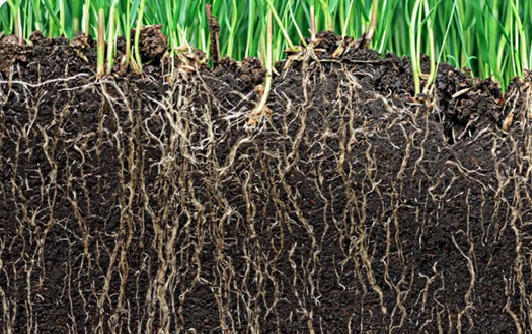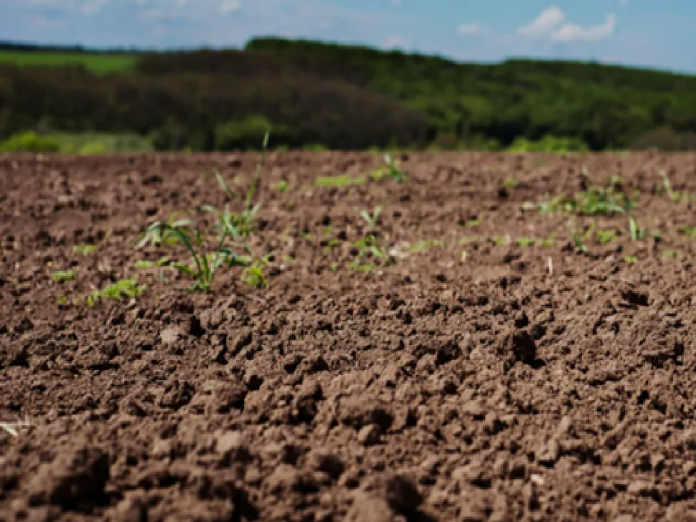By Hayder Gurchani(Netherlands)
Agriculture has been the backbone of European economies for centuries, supporting livelihoods, ensuring food security, and shaping the continent’s landscapes. However, with increasing environmental concerns, resource depletion, and the effects of climate change, the sustainability of European agriculture has become a critical issue. Sustainable agriculture seeks to balance economic productivity, environmental protection, and social equity. This article explores the challenges and opportunities of sustainable agriculture in Europe, examining the policies in place, the role of technological advancements, and the future prospects of agricultural sustainability.
The need for sustainable agriculture
Sustainable agriculture is essential for Europe due to several factors. The depletion of natural resources, declining soil fertility, loss of biodiversity, and the growing demand for food necessitate practices that preserve the environment while ensuring agricultural productivity. Today one quarter of EU land is degraded due to water erosion. Furthermore, climate change presents a significant challenge, leading to unpredictable weather patterns, increased pests, and reduced water availability. Addressing these issues requires a shift from conventional, intensive farming towards more sustainable agricultural practices.
Soil degradation in Europe is increasing on an alarming rate (credit Europe news IT)
Challenges in Achieving Agricultural Sustainability
Climate change and environmental degradation
Climate change has altered precipitation patterns, causing frequent flooding and droughts in the region result in varied biotic and abiotic pressure on crops and affected crop yields. Rising temperatures and prolonged droughts threaten water resources, making irrigation increasingly difficult. Soil degradation due to intensive farming practices, such as excessive plowing and monoculture cropping, further exacerbates the problem and causing and biodiversity loss.
Dependence on chemical inputs
European agriculture has long been reliant on synthetic fertilizers and pesticides to enhance productivity. However, the excessive use of these chemicals has led to soil degradation, water pollution, and harm to non-target organisms, including pollinators like bees and other insect species. The European Union (EU) has recognized this issue and is promoting sustainable alternatives such as organic farming and integrated pest management. There is a greater focus on nature positive and regenerative agriculture, which is gradually being adapted by producers, processors, distributers and consumers in the food value chain.
Loss of Biodiversity
Modern agricultural practices have led to the homogenization of landscapes, reducing biodiversity. The expansion of monoculture farming has displaced traditional farming systems that supported diverse plant and animal species. Biodiversity is crucial for ecosystem stability, pest control, and soil fertility. Efforts to promote agroecological practices are necessary to restore biodiversity and enhance the resilience of agricultural systems.
Socioeconomic Constraints
Many European farmers face economic challenges due to fluctuating market prices, high production costs, and competition from international agricultural markets. Small and medium-sized farms, which are often more sustainable, struggle to remain viable against large-scale industrial farms. Additionally, younger generations are showing less interest in farming, leading to an aging farming population and concerns about the future workforce in agriculture.
Policies and Strategies for Sustainable Agriculture
The European Green Deal and Farm to Fork Strategy
The EU has implemented several policies aimed at promoting sustainability in agriculture. The European Green Deal, introduced in 2019, sets ambitious targets to achieve climate neutrality by 2050. One of its core components is the Farm to Fork Strategy, which aims to make food systems fair, healthy, and environmentally friendly. Key goals include reducing the use of chemical pesticides by 50%, decreasing fertilizer use by 20%, and increasing organic farming to cover at least 25% of agricultural land by 2030.
Common Agricultural Policy (CAP)
The Common Agricultural Policy (CAP) plays a crucial role in shaping European agriculture. The latest reforms emphasize sustainability by allocating subsidies based on environmental performance. Farmers are incentivized to adopt eco-friendly practices, such as crop diversification, soil conservation, follow land, and sustainable water management. The CAP also promotes rural development programs that support small farmers and encourage sustainable innovations.
Nature Positive and Regenerative Farming Initiatives
The EU has been actively promoting organic farming as a sustainable alternative to conventional agriculture. Organic farming avoids synthetic chemicals, emphasizes soil health, and supports biodiversity. Additionally, regenerative agriculture, which focuses on improving soil health through techniques like cover cropping and reduced tillage, is gaining traction as a means to enhance long-term sustainability.
 Regenerative Agriculture leading to healthy soil and crops as in the image (credit: EU CAP Network)
Regenerative Agriculture leading to healthy soil and crops as in the image (credit: EU CAP Network)
Role of Technology and Innovation
Precision Agriculture
Precision agriculture utilizes advanced technologies, such as GPS, drones, and artificial intelligence, to optimize resource use. By employing real-time data analysis, farmers can make informed decisions about irrigation, fertilization, and pest control, reducing waste and improving efficiency. It helps farmers only to apply the crop treatment on the affected area instead of entire field. Precision agriculture helps lower the environmental footprint of farming while maintaining high productivity.
Vertical Farming and Hydroponics
Large urban population being the main food consumption centers, have led to the development of alternative farming methods like vertical farming and hydroponics. These methods enable year-round food production closer to consumers with minimal land and water use. By reducing dependence on traditional agricultural land, these innovations contribute to food security while mitigating environmental degradation.
Sustainable Livestock Management
Livestock farming is a major contributor to greenhouse gas emissions, particularly methane. Sustainable livestock practices, such as rotational grazing, improved feed efficiency, and methane capture technologies, can significantly reduce emissions. The promotion of alternative protein sources, including plant-based and lab-grown meat, also presents an opportunity to reduce the environmental impact of animal agriculture.
The Future of Sustainable Agriculture in Europe
Transitioning to Agroecology
Agroecology, which integrates ecological principles into farming, is gaining attention as a holistic approach to sustainability. By promoting crop diversification, natural pest control, and soil health management, agroecology enhances resilience to climate change and reduces dependency on external inputs. The EU’s policy framework increasingly supports agroecological practices such as regenerative agriculture, offering funding and training for farmers.
Strengthening Local Food Systems
Local food systems reduce the carbon footprint associated with transportation and promote regional economies. Farmers’ markets, community-supported agriculture (CSA), and farm-to-table initiatives encourage sustainable consumption. The EU is advocating for shorter supply chains and improved transparency in food production to strengthen local food networks.
Enhancing Education and Farmer Support
Sustainability requires knowledge transfer and capacity building. Educational programs, training workshops, and advisory services help farmers adopt sustainable practices. Government and private sector investments in research and development also play a crucial role in driving innovation in sustainable agriculture.
Policy Coherence and International Cooperation
While Europe is making significant progress, global cooperation is essential to address sustainability challenges comprehensively. The EU is engaging in international climate agreements and agricultural collaborations to promote sustainable practices worldwide. Aligning trade policies with sustainability goals can further enhance global food security and environmental protection. Some of the key examples are that European super markets enforce same food quality standards on international exporters to EU as they have in place for the European Farmers.
Conclusion
European agriculture stands at a crossroads, facing pressing environmental, economic, and social challenges. The transition to sustainable agriculture is imperative for ensuring food security, protecting natural resources, and mitigating climate change. Through policies such as the European Green Deal and CAP, along with advancements in technology and agroecological approaches, Europe is taking significant steps toward sustainability. However, continued investment, education, and collaboration among key stakeholders will be necessary to achieve a truly sustainable agricultural future. By embracing innovation and ecological stewardship, European agriculture can serve as a global model for sustainable food production.






